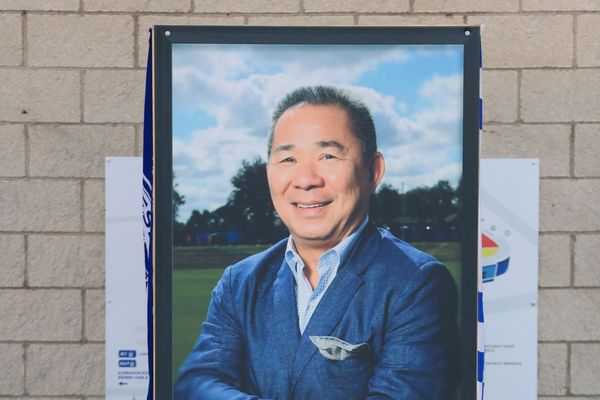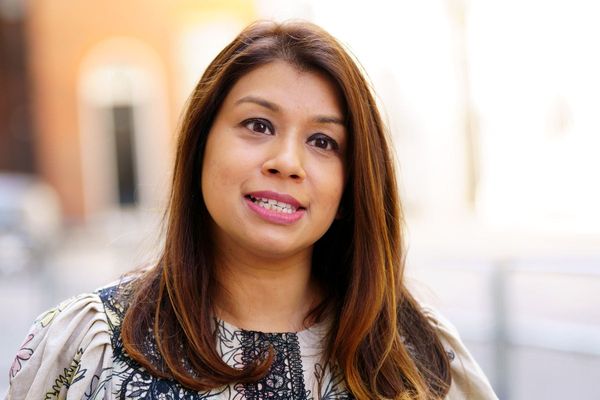
In late summer 2016, Lucie Liu, then 24, arrived in Taipei to intern at the Goethe Institute. Liu, who had recently completed her undergraduate studies in Political Science, had little idea that Taiwan would capture her heart and inspire her to invest two years in creating a documentary about the battle for marriage equality in Taiwan.
Liu returned to Germany after the summer and, with remarkable persistence, lobbied for and obtained funds to produce the film despite having no experience in filmmaking. In October 2017, Liu began working on her same-sex marriage documentary back in Taipei. The film taipeilove* premiered in Berlin on June 27 this year. The documentary has already been shown in London at SOAS, and also in Taipei earlier this month.
The News Lens caught up with Liu in Taipei to talk about the challenges and triumphs of the project ahead of Wednesday’s screening at the Red Room (紅坊國際村).
This interview has been edited for clarity and conciseness. Screening details are available at the end of the interview.
I came to Taiwan for the first time in my life and they speak the language my dad speaks and I suddenly have this beautiful little treasure in the ocean and it’s Taiwan.
Lucie Liu, Director of taipeilove*
TNL: How did taipeilove* come about? In a previous interview with The News Lens you mentioned that you had the idea while you were living in Taipei in 2016?
Liu: Yes, I met two guys at Pride: one from Korea, one from Japan. They told me that the days they came to Taipei Pride each year were the only days they could fully express themselves. Not only sexually, but they could also hold hands and kiss. After that, I was thinking about it, and I thought a visual platform such as a documentary would be a good way to explain a place for the people who have never seen it.
Later when I went back to Germany, there were two reasons I wanted to do a film. Firstly, I thought, how can I connect Taiwan’s unique role in terms of same-sex marriage and equality? I was really interested in this topic and these guys really inspired me to go all in. And the other was that I really wanted to go back to Taiwan and to show Taiwan to the world because I was really fascinated by it. A German political institute funded me — I nagged them for three months until they agreed and I came back to Taipei in October 2017 with the idea and the money and that was it. Super naïve, but now I’m here.
I stayed eight months. I originally planned to stay until the December but I realized that this needs time. I had the vision, the idea, I wrote the script, the interviews. I didn’t just direct it I produced it as well. But I outsourced everything else because I wanted to work with professionals.

TNL: In the previous interview with you described the process of finding your protagonists. Could you briefly describe them for readers who haven’t seen the film yet?
Liu: I have three protagonists and five experts — Wayne Lin (維尼), Jennifer Lu (呂欣潔), Yu Mei-nu (尤美女), Victoria Hsu (許秀雯) and Chi Chia-wei (祁家威). The three protagonists are Sarah, Kevin, and David. Sarah was 26 at the time we filmed. She’s lesbian, she’s out to her family, and she has an outgoing personality. On the other side is Kevin and David, they were both 45 when we filmed. They are a gay couple who had been together at the time for 13 years. With the three of them I was able to portray the generational divide — It’s a lot easier now for Sarah then it used to be for Kevin and David. The fights that they fought enabled Sarah to be who she is today. They fought to be accepted and now Sarah is accepted, she’s very cool with being a lesbian. Although she did face some trouble when she was coming out.
TNL: What were some of the challenges you faced on the project?
Liu: Finding the protagonists was very difficult. I spoke to around 40 people to find people that would suit the idea, that clicked with me, and that also would be able to speak on camera. A lot of people didn’t fulfill that criteria because they weren’t out to their families and they were scared of being ostracized or abandoned by their families. But I kept hearing the same issues from them — the problems with the family, the problems with tradition, the problems with society.
I was very lucky to find Sarah, Kevin and David. I was introduced to Sarah by a good friend of mine, and then Sarah introduced me to Kevin and David because they are old friends.
Another challenge was to find people to work with. I was really lucky I had the most amazing cameraman — Zed Wang (王治德). He understood the topic and he gave me super low rates. He usually charges a very high rate, but he really believed in the topic.
There was also an unfortunate side in that there were some people who didn’t really believe in the project but wanted to make money out of it, some footage was deleted, and there was some stuff I never got back even though I paid for it. It was a bit unfortunate. So that was something I struggled with for a bit, but as I went along I learned to go with my gut.

TNL: What were some of your most memorable moments from the process?
Liu: Definitely at Sarah’s house. We’d just talked to Sarah’s two aunts who were willing to talk in front of the camera. I think they sent a picture of the whole thing to the family’s Line group. Then Sarah’s mother called. And Sarah was so quick, I’m still amazed she said “Lai! Lai! Lai!” (Come!) — then she put her phone on speaker and just asked all the questions I wanted to ask her mum on the phone and it’s the golden shot of the entire film. It lasts about two minutes and it really describes how her mum is torn between tradition and her love for Sarah. It’s the most beautiful moment and when I showed it in Berlin almost everyone cried. In London, too, I saw people with one or two teardrops running down their cheeks. I think that was the most incredible moment.
And, of course, I think also the days I spent with the protagonists. That was really beautiful, those people didn’t know me but they really opened up.

TNL: Although you’ve lived in Taiwan before, and spent eight months here filming, did you find that there were any challenges presented in terms of filming such an intimate issue sensitively when you come from outside the culture? If so, how did you overcome them?
Liu: Totally. My dad is from China, so Asian culture was always part of my life. I wouldn’t compare the Taiwanese culture and the Chinese culture, but there are some similarities like family expectations, pressure on young people in school and things like that. So I was familiar with that, but I constantly had to remind myself to listen to people. In the beginning I was pretty sure that they would answer one way and would try to lead the question towards that direction, but then I realized - no, no, no, just listen. I listened and then we got great footage. So that really helped.
You have to reflect on that when you are filming outside your culture; it’s a delicate topic after all. With Sarah we spent time with her family — with her two aunts and some close friends — and it helped because she kept opening up and was really able to tell her story. And Kevin — he needed a bit of time to warm up and David as well.
TNL: After dedicating nearly two years of your life to this project what have you learned along the way? Would you recommend other young filmmakers to undertake such a large project as their first solo project?
Liu: The thing I learned the most was to listen to my gut. When you do something big like this, you have to find something that you truly believe in. This was something I wanted to show to the world. It was so important to me and that’s what kept me going.
I think I’ve matured a lot throughout the process. In the beginning I was incredibly naïve — every step I took through this independent film project was the first one: The first time editing, the first time shooting, the first time asking questions to complete strangers. I think the reason I made it was that I put an incredible amount of time into it and I believed in it.
My dad is from China and my mum is German, so when I was growing up, Germany was always the good side and they always did things right and China was just violating human rights, treating people shitty, and no one was helping each other. Then all of a sudden I came to Taiwan for the first time in my life and they speak the language my dad speaks and I suddenly have this beautiful little treasure in the ocean and it’s Taiwan. It closed the gap in my identity and I think that’s what kept me going.
For other young filmmakers I would say if you do something big like this you have to find something that will keep you going. I feel a lot of projects stop because people lose their passion about it for whatever reason. So an aspiring filmmaker has to find something about the project that they really, really love. Reasons like money or fame or whatever are not going to work. I won’t make any money off this. I’m happy if I can pay all the bills and I am done.
Also if people tell you you can’t do it, don’t listen to them. You have to be naïve to a certain extent. If I had known what could have possibly gone wrong I probably wouldn’t have started this project.

TNL: After being so invested in following the battle for marriage equality in Taiwan it must have been a significant moment for you when you heard a law had been passed. Where were you when you heard and how did you feel?
Liu: I live in Berlin but I was back home in Munich. And I remember my mum waking me up with tears in her eyes (she cries easily but still). She said “Lucie, Lucie! They made it in Taiwan! They legalized it.” And I got up and I started crying and even my dad who barely cries cried on the table and then we all had breakfast together and it was so emotional because all of us were so happy it happened, since, of course, they became invested because they are my parents. It was just beautiful.
TNL: How has the film been received at the screenings so far?
Liu: The day of the premiere in Berlin — June 27 — was the most endorphins I’ve ever had in my body. I wanted to rent a cinema but it was going to cost 2,300 euros. But then I told the cinema management about the topic and since it was Pride month in Berlin, they suggested that we just sell regular tickets. We filled a 137-seat cinema — and there were even people sitting on the stairs. Then the German politician who is responsible for legalizing same-sex marriage in Germany, Volker Beck, gave a short speech and the Taiwanese ambassador to Germany, Dr. Jhy-Wey Shieh (謝志偉), spoke to the audience as well.
It felt incredible to show this movie to people for the first time, to this big audience. All these people watching a film that grew from an idea you had sitting at home hanging out with your flatmates two years before — they are laughing and crying and you can feel their tension during the film. At some point they are thinking “man! why is this so unfair!” It was a beautiful moment. I’ve never felt something like that before, and I was floating on clouds for a couple of days.
For the Taiwan screenings everything was on super short notice. On the Monday — July 8 — I was told taipeilove* was going to be screened at the Taiwan International Queer Film Festival, on the Tuesday the Goethe Institute denied me funding to fly over, then on Wednesday I got a phone call from the Taiwanese ambassador in Berlin asking, “Lucie how much money do you need? We will fly you in. We will make that happen.”
Then on the Friday I took my flight. I didn’t have much time to advertise the screening, and neither did the festival, so there were maybe 50 people. But it was nice — I was on stage with three gay rights activists, who talked about their opinions about the film, and what is going on right now in Taiwanese society. The Q&A turned out to be as long as the film! They had so many questions and I was proud to show taipeilove* in front of a Taiwanese audience. I could see some people with some tears running down their cheeks and it was very touching for me, because that’s the people I made this for.
I want people from Europe and America to see the film, but it is for the Taiwanese people, because it is a summary of what was happening on a very intimate level over the last two years.
TNL: What is next for taipeilove*?
Liu: There will be a tour around German universities and film festivals. Then hopefully off to Italy for a festival and then the United Kingdom for a festival.
TNL: Do you have any plans in the pipeline for new projects?
Liu: I just want to finish grad school! A good friend of mine was MCing the Berlin premiere and he said we’ve all waited two years, “Lucie waited two years to finally see her project and we waited two years to finally spend time with Lucie.”
Screening Details:
The film is in Chinese with English subtitles.
Taipei: Film Screening and Q&A at Red Room (紅坊國際村)
Wednesday, July 24, 2019 | 7:30 p.m.
Tickets: NT$200
Address:
177 Jianguo South Road, Section 1, Zhongzheng District, Taipei (1st building on the left, 2F)
MRT: Zhongxiao Xinsheng Station Exit 6
建國南路一段177號 (入口左邊第一棟灰色大樓2F)
忠孝新生站 6 號出口
Kaohsiung: Film Screening at Kaohsiung Film Archive (高雄市電影館)
Tuesday, August 6, 2019 | 7:00 p.m.
Free Entrance
Address:
No. 10, Hexi Road, Yancheng District, Kaohsiung City
MRT: R8 Sanduo Shopping District Station Exit 2 (approximately 10 mins on foot)
高雄市前鎮區新光路61號
三多商圈車站 (R8) 2 號出口
Follow taipeilove* on Facebook, Instagram, and Twitter for more screening updates.
TNL Editor: Daphne K. Lee (@thenewslensintl)
If you've enjoyed this article and wish to receive more story updates, please be sure to like our Facebook page below.







